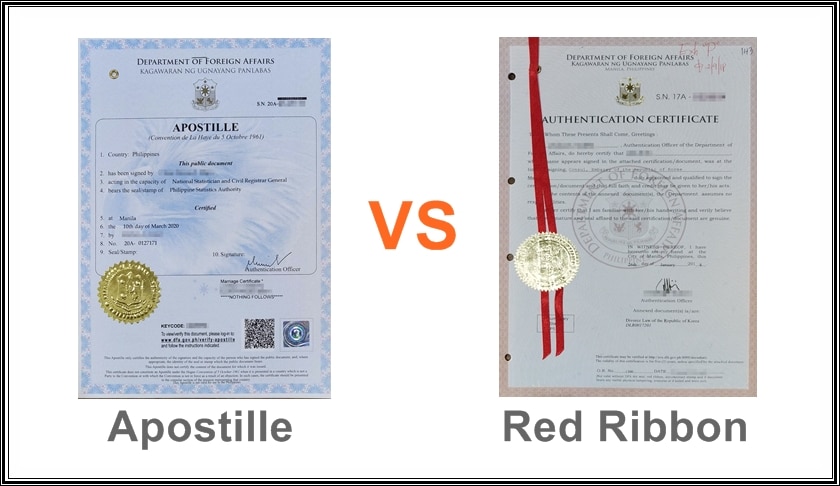Recognizing the Apostille Refine: A Comprehensive Guide to International Document Verification
Navigating the elaborate landscape of global document authentication can be daunting without a clear understanding of the apostille procedure. This guide carefully details the necessary steps, from determining which records call for certification to sending them for confirmation by the Competent Authority. Comprehending the value of an apostille and acknowledging possible risks, such as insufficient entries and language obstacles, can dramatically simplify the verification trip. What precisely defines an apostille, and why is it so important for records predestined for Hague Convention nations? These concerns form the foundation of our exploration into this important legal procedure.
What Is an Apostille?
An apostille is a main qualification that validates the credibility of a record for usage in one more country. This certification, provided by a designated authority in the country where the record stemmed, makes sure that the file is acknowledged as legitimate and genuine in the worldwide arena. The procedure of getting an apostille involves a number of steps, including the verification of the file's trademarks, seals, and stamps by appropriate governmental bodies.
The apostille acts as a globally recognized type of verification, enabled by the Hague Convention of 1961. This treaty, officially referred to as the Hague Convention Abolishing the Requirement of Legalisation for Foreign Public Records, standardizes the process of document certification amongst participant countries. The apostille itself is a standardized certification which contains specific details, such as the providing authority, the native land, and the date of issuance.
It is necessary to keep in mind that not all files are qualified for an apostille. Commonly, public records like birth certifications, marriage licenses, court orders, and academic diplomas qualify for this qualification. Private records, such as contracts and agreements, might require notarization and added steps to certify.
Value of Apostille
Understanding what an apostille is establishes the phase for appreciating its significance in worldwide ventures. houston tx apostille. An apostille, essentially a type of certification released by a designated authority, validates the credibility of a file for usage in foreign nations that are notaries to the Hague Apostille Convention. This standardized procedure removes the need for additional legalization by consular offices or consulates, thus simplifying international purchases
It makes sure the credibility and acceptance of vital papers-- such as birth certifications, marriage licenses, and educational diplomas-- throughout boundaries. For organizations, it promotes the smooth conduct of worldwide trade, mergers, and procurements by giving a relied on approach of document confirmation.
Additionally, an apostille enhances lawful safety and security and compliance. Governments and establishments can confidently rely on the credibility of documents bearing an apostille, mitigating the danger of fraudulence and misrepresentation.
Records That Call For Apostille
When taking part in global transactions or legal issues, particular records typically demand the authentication supplied by an apostille. This guarantees their acknowledgment and acceptance in countries that are notaries to the Hague Apostille Convention. Generally, personal papers such as birth certifications, marital relationship certifications, and death certificates need an apostille, specifically when they are used for procedures like migration, marriage abroad, or worldwide probate issues.
Educational records are an additional category regularly calling for apostilles. Diplomas, transcripts, and academic records commonly require this verification for purposes such as pursuing additional education and learning, work, or specialist licensing in a foreign country (houston tx apostille). This step guarantees that the files are identified as legitimate and legitimate
Lawful records, this article consisting of powers of lawyer, affidavits, and court orders, additionally commonly necessitate apostilles. Company files such as certificates of incorporation, bylaws, and industrial contracts may require an apostille to help with worldwide profession, develop foreign branches, or engage in cross-border legal proceedings.
Steps to Acquire an Apostille

Getting an apostille entails a multi-step process that makes certain the credibility and approval of your papers in foreign countries. The initial step is recognizing which papers require an apostille. houston tx apostille. Typical documents include birth certifications, marriage licenses, academic records, and business files
When determined, the document has to be accredited by the appropriate providing authority. After accreditation, the document must be submitted to the marked Competent Authority in the file's nation of pop over to these guys origin.
The entry process usually needs a completed application type, the original paper, and a charge. Some territories might supply the option of expedited handling for an added cost. Upon successful confirmation, the Competent Authority will certainly affix the apostille certification to the file, consequently validating its authenticity.
Common Obstacles and Solutions
Browsing the apostille procedure can provide numerous typical obstacles that, if not appropriately resolved, might delay or complicate record verification. Each country has certain needs for the types of files that can be apostilled, and any type of variance from these can result in being rejected.
One more typical obstacle is comprehending the different handling times. Processing times can differ considerably between nations and even between various regions within the exact same nation. It is necessary to her explanation account for these variations when preparing the apostille process to stay clear of unforeseen hold-ups.
Additionally, language obstacles can present substantial obstacles. Files in an international language typically call for qualified translations, and any kind of errors in translation can result in additional difficulties. Involving a professional translation solution can reduce this danger.

Final Thought
Understanding the apostille procedure significantly improves the effectiveness of worldwide record verification. By comprehending the requirement of determining and certifying needed records, and navigating the entry to the Competent Authority, the procedure ends up being a lot more manageable. Recognition of typical obstacles, such as insufficient submissions and language barriers, better help in protecting against possible hold-ups. Making sure records are properly apostilled facilitates their approval in Hague Convention signatory nations, thus supporting smooth worldwide legal and management treatments.